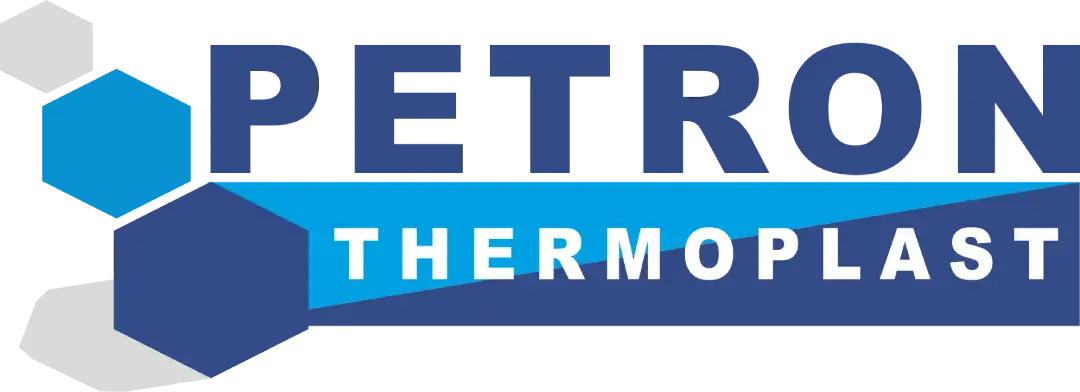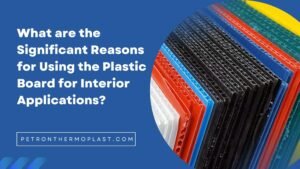For more than 80 years, PTFE Materials has made our lives better on a daily basis. Contrary to popular belief, Dr. Roy Plunkett, a scientist, accidentally discovered PTFE in 1938 while trying to create a “coolant gas.” He discovered that a quantity of gas had polymerized after being left out overnight, leaving behind a fine powder with a noticeably slick texture and extraordinary capabilities.
PTFE is a synthetic fluoropolymer of tetrafluoroethylene (TFE) at its most basic level. It is a solid fluorocarbon compound with a high molecular weight that is made up only of fluorine and carbon atoms. PTFE sheets are very adaptable, corrosion-resistant, and may be used in practically anything, including computer cables, aircraft shuttles, and even the food and beverage industries!
Petron Thermoplast offers virgin PTFE in both rods and sheets. Our sheet sizes range from 2 mm to 40 mm in thickness, and the diameter of our rods is from 10 mm to 120 mm. In order to aid boost strength and wear resistance, it is also available as glass filler. Because of our productive collaboration with Mitsubishi Chemical Advanced Engineering, we are able to provide you with professional guidance on all materials, their grade options, and other aspects, including design, processing, and characteristics.
PTFE, or polytetrafluoroethylene, is a substance invented by E.I. DuPont in 1938 and has since grown to be a very well-liked option for sealing various chemicals, acids, bases, and steam. It is difficult to compress this robust material, which is good for abrasion resistance but unsuitable for effectively sealing liquids. Because of this, PTFE is mostly utilized as backup rings, seals, brushes, plugs, and washers.
Because of their extraordinary advantages, PTFE Materials gaskets and sheets are consistently praised and advised for usage. They claim that using sheets and gaskets constructed of this material offers clear benefits in the right applications. The blog discusses six distinctive characteristics that make PTFE the best material.
Chemical Resistance
Its remarkable chemical resistance is the key feature that distinguishes it from other products in the market. It is preferable when using harsh chemicals like bases, solvents, and acids. There aren’t many compounds on the list of substances that can truly damage the polymer. This makes it easy to utilize in a range of applications, including chemical processing.
Temperature Resistance
It is crucial to utilize materials that can withstand high temperatures in all kinds of industrial operations. Temperature resistance is extremely important, particularly in the metallurgical, food, and chemical processing industries. An excellent material that can endure temperatures up to 260 degrees Celsius or 500 degrees Fahrenheit is PTFE Materials. Because of this, PTFE is the perfect material for uses that call for corrosive fluids and relatively high working temperatures.
Versatility
You may pick from a variety of PTFE gaskets and sheets. The materials reflect various chemical compositions and production techniques, resulting in materials with a range of cost and performance characteristics. Users can select the type of PTFE that best meets their operating demands due to the differences in performance and price. There are several different thicknesses, fillers, compressed sheets, and silicone options for the gaskets. They may be specially made for various pipe diameters.
Non-corrosive properties
Because the operations in the chemical and pharmaceutical industries employ severe chemicals and acids, you need a corrosion-resistant material. PTFE Materials and sheets are appropriate in these sectors because they lack wetting, corrosion, and contamination. PTFE’s non-wetting characteristic provides superior sealing and improved leak prevention.
Electrical and thermal insulation
Even though the operation creates heat, a PTFE gasket doesn’t become hot. As a result, it is utilized in many industrial operations where a high level of thermal insulation is desired. The material must be treated to resist the greater insulation demands if the process calls for even higher degrees of thermal insulation. These specialist PTFE gaskets, sheets, and other items cost more than usual.
Easy availability
You may order bespoke PTFE material for a range of industrial uses thanks to the internet’s widespread use. Manufacturers can build sheets and gaskets as needed if users provide them with detailed specifications.
THE MAIN PROPERTIES OF PTFE
Suppose you were attempting to create a very flexible material, resistant to chemicals and heat, non-stick, and electrically resistant, and it hadn’t previously been done. In that case, you’d be hoping you could create something that was almost as excellent as PTFE in these areas.
Nearly completely chemically inert, extremely insoluble in most solvents or chemicals, and thermally stable enough to be utilized between -200 degrees C and +260 degrees C without deteriorating, PTFE has a melting temperature of around 327 degrees Celsius.
In addition to having a high flexural strength even at low temperatures, PTFE Materials also have strong electrical and dielectric characteristics, are resistant to water (because of fluorine’s high electronegativity), and have a low coefficient of friction. PTFE has a density of 2200 kg/m3, which is likewise quite high.
The only thing to remember when using PTFE is that it does not have good resistance to high-energy radiation, which will cause the PTFE molecule to break down. Examples of these chemicals and solvents include chlorine trifluoride, cobalt(III) fluoride, xenon difluoride, and elementary fluorine if at high pressure and temperature.
It is obvious that components with a longer lifespan and greater performance may increase the productivity of any apparatus, decrease the need to regularly buy replacement parts, save time and money on the installation process, and minimize waste. As a result, there will be less need for maintenance as well as a significant reduction or even elimination of any costly industrial downtime caused by malfunctions or repairs. In some circumstances, the cleaning of equipment can be decreased as a PTFE Materials coat is non-wetting and promotes the self-cleaning of components. Please check out the PTFE Materials online available at Petron Thermoplast. Visit the website now!
You can also see – Custom Plastic Injection Molding | Machined Parts





Pingback: เว็บปั้มวิว
Pingback: 태국탐정
Pingback: https://vhnbio.com
Pingback: 카지노게임
Pingback: more information
Pingback: Khủng bố
Pingback: lost vape orion dna
Pingback: Jaxx Liberty
Pingback: ทำความรู้จักกับหวยลาว
Pingback: บาคาร่าเกาหลี
Pingback: โคมโรงงาน
Pingback: kc9